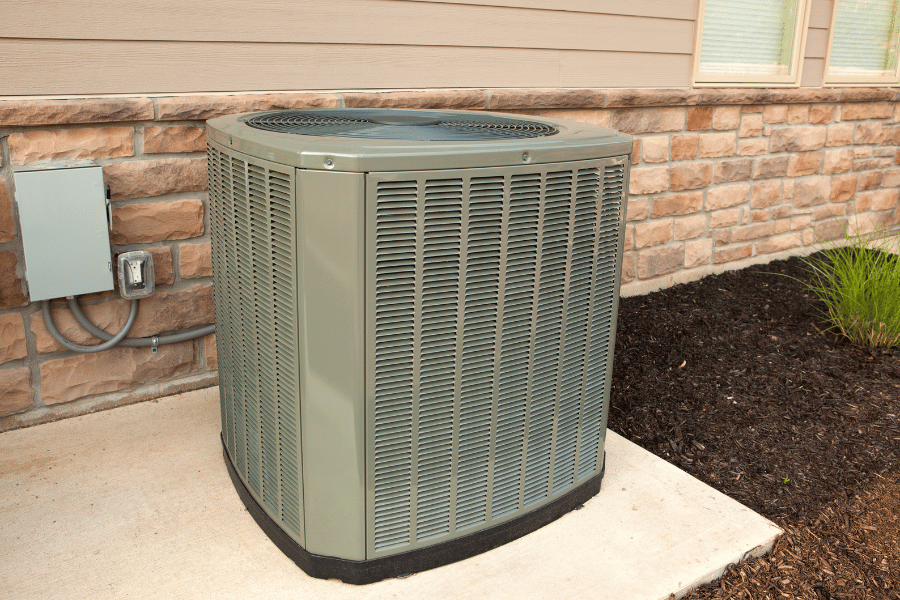In the quest for a comfortable home environment, homeowners often face the challenge of balancing comfort with cost. One essential piece of the puzzle lies in understanding SEER ratings and how they play a pivotal role in this balance. SEER, or Seasonal Energy Efficiency Ratio, is a metric that measures the cooling efficiency of air conditioners and heat pumps.

In this guide, we’ll dive into the significance of SEER ratings and how they can help you save money while keeping your home comfortably cool.
What Are SEER Ratings?
At its core, a SEER rating is the ratio of the cooling output of an air conditioner over a typical cooling season, divided by the energy it uses in Watt-Hours. It’s a measure that has been standardized by the Air Conditioning, Heating, and Refrigeration Institute (AHRI) to provide consumers with a clear, comparative look at the energy efficiency of different HVAC systems. The higher the SEER rating, the more efficiently the unit operates, leading to lower electricity bills and a smaller carbon footprint.
Why Do SEER Ratings Matter?
Understanding and considering SEER ratings when choosing a new air conditioner or heat pump can have a significant impact on both your wallet and your comfort. Here’s why:
- Energy Savings: High-efficiency units with a higher SEER rating consume less energy to provide the same amount of cooling as lower-rated models, translating into direct savings on your energy bills.
- Environmental Impact: By opting for a unit with a higher SEER rating, you’re choosing a more environmentally friendly option. Efficient systems require less electricity, which can mean fewer greenhouse gas emissions depending on your energy source.
- Comfort and Control: Modern high-efficiency air conditioners often come with additional features such as variable speed fans and compressors. These can improve indoor comfort by maintaining more consistent temperatures and reducing humidity levels.
- Rebates and Incentives: In many areas, purchasing a high-SEER air conditioner can qualify you for rebates or tax credits, offsetting part of the upfront cost.
Choosing the Right SEER Rating for Your Home
While a higher SEER rating indicates higher efficiency, the ideal rating for your home will depend on various factors, including climate, the size of your home, and your budget. In general, homeowners in hotter climates will benefit more from a high-SEER unit due to the extended cooling season. However, it’s important to conduct a cost-benefit analysis to determine the payback period of investing in a higher-SEER model.
It’s Not Just About the SEER Rating
While SEER is an important factor in choosing an efficient air conditioning system, it’s not the only thing to consider. Ensure that your home is well-insulated and that your HVAC system is properly sized for your space. An oversized or undersized unit can lead to inefficiency, increased wear and tear, and discomfort.
Final Thoughts
SEER ratings are a crucial consideration for any homeowner looking to upgrade their air conditioning system. By choosing a unit with a high SEER rating, you’re investing in your home’s comfort, reducing your environmental impact, and potentially saving significant amounts of money over the life of the unit. Remember, the best SEER rating for your home will depend on your specific needs and circumstances. Consider consulting with a professional HVAC contractor who can provide personalized advice based on your home’s characteristics and your family’s comfort preferences.
Investing in a high-efficiency air conditioner is a smart decision that pays dividends in comfort and savings. Understanding SEER ratings empowers you to make informed choices, ensuring that you enjoy a cool, comfortable home without breaking the bank.
If you are experiencing a problem with your air conditioning or heating call us at 512-336-1431 to schedule an appointment. We’ll be glad to come out and take a look at the issue.
1431-183 A/C & Heating proudly serves Round Rock, Georgetown, Cedar Park, Pflugerville, Leander, Liberty Hill, and North Austin.
